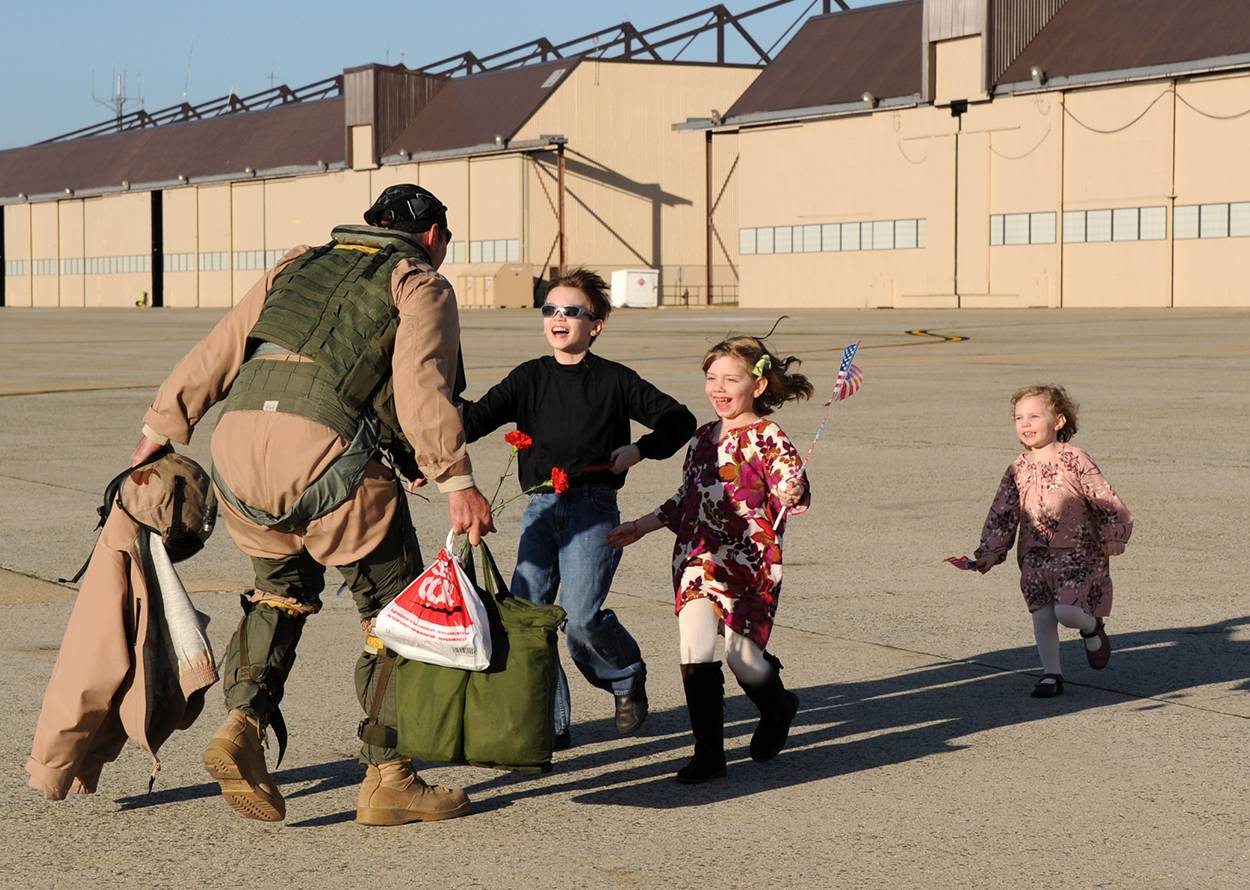In recognizing the profound impact of supportive organizations, this guide explores various ways to help veterans facing challenges such as mental health issues, physical disabilities, and reintegration into civilian life.
As a key player in this critical field, Cell Phones For Soldiers actively contributes to the well-being of veterans, offering unique programs and initiatives. Join us in understanding the needs of veterans and discover effective ways to support them, whether through volunteering, donating phones, or contributing financially. Your engagement can make a meaningful difference in the lives of those who have bravely served our nation.
Understanding the Needs of Veterans
Delving into the complexities of veterans’ experiences, it’s crucial to acknowledge the multifaceted challenges they encounter. From grappling with mental health issues, including PTSD, depression, and anxiety, to coping with physical disabilities such as traumatic injuries and chronic pain, veterans navigate a unique set of obstacles.
Additionally, the intricate process of reintegrating into civilian life poses its own set of difficulties, encompassing aspects like employment, family adjustments, and societal reintegration. By comprehending these challenges, we can better appreciate the diverse needs of veterans and work towards providing meaningful support.
Mental Health Challenges
Addressing the mental health challenges faced by veterans is paramount, with conditions like PTSD, depression, and anxiety requiring thoughtful consideration. According to a study by the U.S. Department of Veterans Affairs, “15.7% of OEF/OIF deployed Veterans screened positive for PTSD, compared to 10.9% of non-deployed Veterans. The overall positive PTSD screening rate among study participants stood at 13.5%”. These statistics underscore the pressing need for robust mental health support tailored to the unique experiences of veterans. Source: U.S. Department of Veterans Affairs
Physical Disabilities and Injuries
Veterans often grapple with physical injuries, including the profound challenges of loss of limbs, traumatic brain injuries, and chronic pain. The scale of the issue is notable, considering that the U.S. has deployed more than 2.7 million Americans to Iraq and Afghanistan since 2001, with over half experiencing multiple deployments (Hautzinger et al., 2015). Medical advancements and improved protective gear have led to a remarkable survival rate of over 90% for injured OEF/OIF military personnel, who might not have survived similar injuries in prior conflicts (Lew et al., 2007; Hoge et al., 2006; IOM, 2013).
Unfortunately, approximately 1,700 military service members have undergone trauma-related amputation since 2002 due to combat exposure in Afghanistan and Iraq (Fischer, 2015). This underscores the pressing need for comprehensive support systems for veterans dealing with physical disabilities and injuries. Source: VCU Rehabilitation Research and Training Center
Reintegration into Civilian Life
Returning to civilian life poses significant challenges for veterans, encompassing various aspects such as employment, family adjustments, and societal reintegration. The statistics on veteran employment underline the complexities they face in this transition. According to the 2024 Jobs Report, the veteran unemployment rate was recorded at 3%. Further insights indicate higher variations in unemployment rates based on gender, disability status, and race, emphasizing the need for targeted support and understanding in the reintegration process. Source: U.S. Bureau of Labor Statistics
Organizations that Support Veterans
Embarking on the noble mission of aiding veterans, a diverse array of organizations steps forward, ranging from nonprofits and government programs to grassroots community initiatives. These entities collectively form a comprehensive network dedicated to addressing the various needs of veterans. From healthcare and housing to employment and education, these organizations offer a broad spectrum of support, aiming to enhance the well-being and integration of veterans into civilian life. Their concerted efforts play a pivotal role in fostering a supportive environment for those who have served our nation.
Non-Profit Organizations
Non-profit organizations stand at the forefront of how to help veterans, tailored to meet the unique needs of veterans. These entities play a crucial role in enhancing the lives of those who have served our nation.
These organizations operate with the support of compassionate individuals and communities. Donations, both monetary and in-kind, serve as a lifeline, enabling non-profits to extend their reach and impact. Volunteerism is another cornerstone, as dedicated individuals contribute their time and skills to amplify the effectiveness of these organizations. The synergy of donations, volunteers, and community support empowers nonprofits to make a meaningful difference in the lives of veterans, fostering a sense of community and care.
Cell Phones For Soldiers
Cell Phones For Soldiers stands as a beacon of support for veterans, embodying a mission dedicated to enhancing the lives of those who have served our country. Since its inception, this unique organization has made a profound impact by facilitating communication services for soldiers and veterans.
The Veteran Phone Application program, a program that will provide veterans with a free phone and a year of paid phone service. This program aims to help veterans to connect with loved ones, seek employment opportunties and contact veteran resources.
Donated cell phones play a crucial role in supporting veterans through Cell Phones For Soldiers. Once received, each device undergoes a meticulous process that involves wiping all personal information and assessing its repairability. Repairable cell phones are sold to electronics refurbishers, who repair and resell the devices, generating funds for the organization. Devices that are too old or irreparable are sold to recyclers, who salvage components and responsibly recycle the remaining parts. The funds generated from this initiative are used to purchase prepaid international calling cards for troops and assist veterans in their transition to civilian life.
By fostering responsible and impactful practices, Cell Phones For Soldiers continues to make a meaningful difference in the lives of veterans, exemplifying a commitment to communication, connection, and support.
How to Help Veterans Through Cell Phones For Soldiers
Supporting veterans is easy and impactful with Cell Phones For Soldiers. To contribute, you can donate phones, volunteer your time, or make a financial contribution. Donating old cell phones is a straightforward process, and your contribution directly aids in providing essential communication services to veterans. If you’re passionate about making a difference, consider volunteering or making a financial contribution to amplify the organization’s impact. Help us spread the word by sharing information about Cell Phones For Soldiers with your network, contributing to our collective effort in supporting those who have served our country.
Government Programs for Veterans
Government plays a crucial role in supporting veterans through programs administered by the Department of Veterans Affairs (VA) and various federal agencies. These initiatives cover a wide spectrum, including essential healthcare benefits, rehabilitation services, and educational grants. Veterans can access specialized healthcare, rehabilitation support, and educational opportunities to facilitate their transition to civilian life. Understanding and utilizing these government programs is vital for veterans to receive the comprehensive support they deserve.
Community Initiatives and Local Support
Local community support plays a pivotal role in enhancing the lives of veterans. From grassroots initiatives to community-driven events, the impact of local efforts is a profound example of how to help veterans. Support groups, community fundraisers, and town-sponsored events all contribute to creating a supportive environment for those who have served our country.
These initiatives not only address immediate needs but also foster a sense of belonging and understanding. Your active participation in local support can make a meaningful difference in veterans’ day-to-day lives. As you reflect on the importance of community-driven efforts, consider joining Cell Phones For Soldiers‘ initiatives to extend your support and contribute to a network dedicated to making a positive impact on veterans’ lives. Together, let’s build a stronger and more supportive community for those who have sacrificed for our nation.



